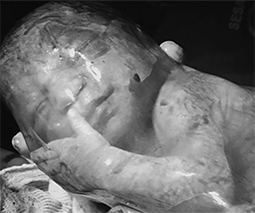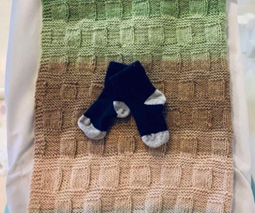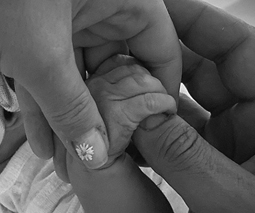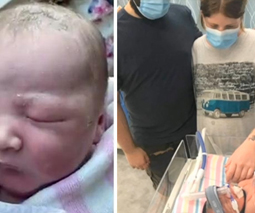Blood test may soon predict accurate due dates AND the risk of premature birth

A test that picks up a cousin of DNA, called RNA, in a pregnant woman’s blood may soon predict the likelihood of premature birth in babies.
Giving early babies a better chance
In Australia, one in ten babies are born premature – prior to 37 weeks gestation – with around 15 per cent of those needing special care once they arrive.
It’s a similar rate globally, with a staggering one million children dying each year, due to complications from premature birth. This new research could change all that.
It’s early days, but a study of a very small group of women has had promising results, and may revolutionise the diagnosis of pre-term bubs. Up until now, methods such as ultrasounds or pelvic examination were used to pinpoint early babies. This blood test may do a much better job of diagnosing the risk of premature delivery – and spark earlier interventions to hopefully prevent it.
(Better) predicting due dates, too!
It’s not only premature births that may be predicted with this test. A baby’s due date may also be more accurately predicted, too.
Read more about birth:
- The surprising way your voice changes after giving birth
- Incredible video shows determined mum delivering her own baby
- Parents-to-be are prepping for birth with these brilliant online classes
The Science journal published study reported that weekly blood samples taken from 31 women (we told you it was a small study!) during their pregnancies allowed the researchers to estimate the age of the foetus based on nine different RNAs.
“Using blood samples taken in both the second and third trimesters, the model predicted the correct gestational age to within 14 days 45 percent of the time,” The Guardian reports.
“By contrast ultrasound imaging carried out in the first trimester of pregnancy was similarly correct 48 per cent of the time for the 31 women.”

More work needed
Obviously that’s not a huge increase percentage-wise, but when we’re dealing with the health and safety of women and babies, any increase is something to celebrate.
“To really get to the final results, and before we actually apply a test that we put into production, we need to do a larger study,” study co-author Dr Mads Melbye admits.
If further successful studies are undertaken and this test does move forward, it will take several years before it’s available to pregnant women.
We’ll keep you posted on further developments.









